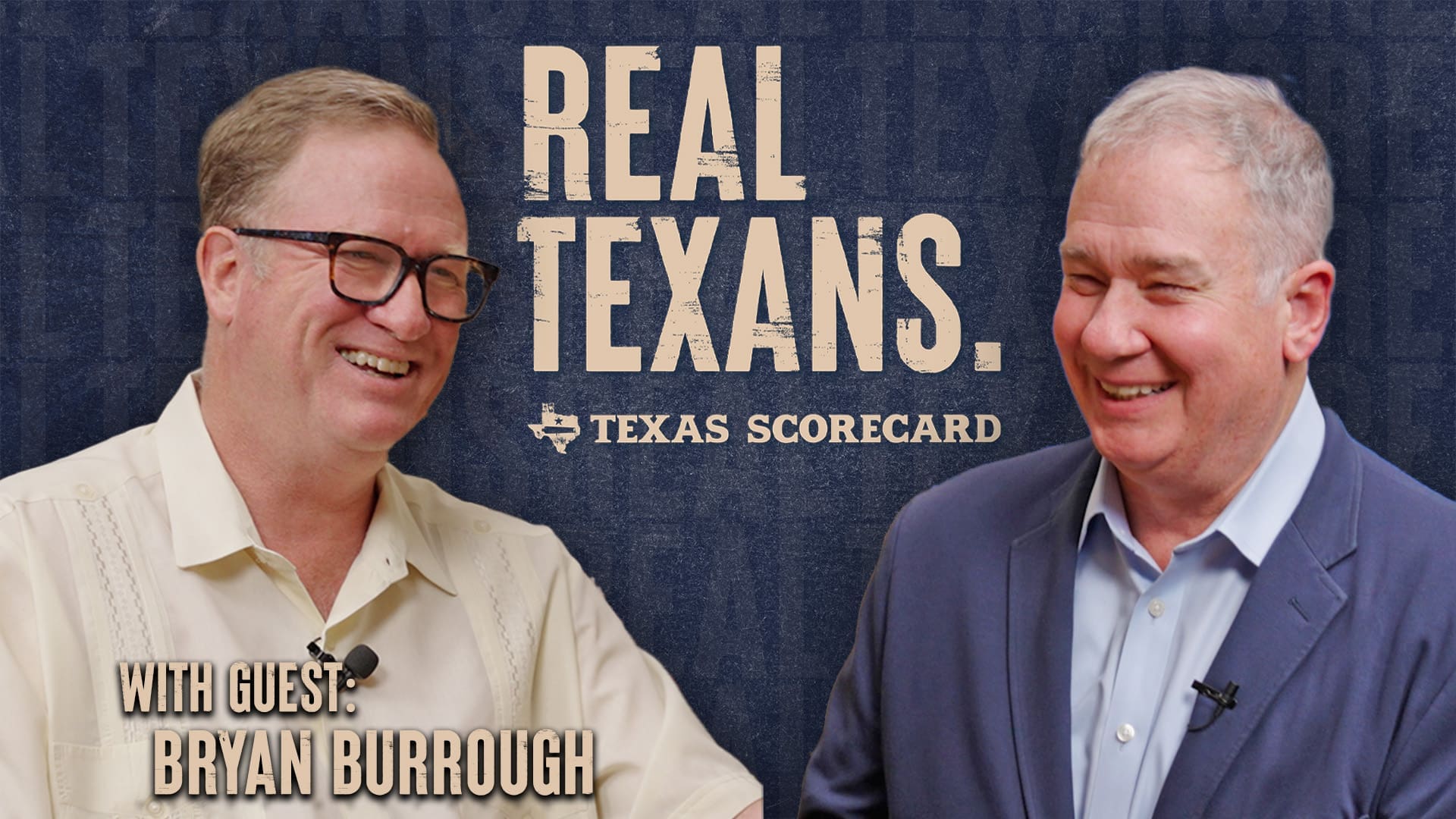Plano officials decided this week to delay a decision on Plano’s controversial comprehensive development plan, leaving unresolved a costly years-long legal battle with residents who petitioned for a referendum vote on the plan.
At a special joint meeting with Plano City Council on Monday, the city’s Planning and Zoning Commission voted to table consideration of a proposal to repeal and replace the Plano Tomorrow Plan—a long-range plan created as a guide for the city’s future growth and development over the next 30 years.
P&Z Commission members said they wanted more time to gather and review information on the impact of the proposal; it would replace the Plano Tomorrow Plan with the city’s previous plan that was in place just prior to Plano Tomorrow’s adoption almost four years ago. The move to table came before officials engaged in much discussion or heard any public comments.
City council can’t consider a zoning ordinance until P&Z reviews it and makes a recommendation, so council was forced to table its agenda item on the proposed ordinance as well. P&Z commissioners agreed to consider the repeal-and-replace proposal at their August 19 meeting—four days after the next court hearing on the referendum petitioners’ lawsuit, set for August 15. A district court ruling in favor of the petitioners would force council’s hand on the issue.
The Plan, Petition, and Lawsuit
City council adopted the Plano Tomorrow Plan in an October 2015 ordinance, over vocal objections from residents who primarily opposed the plan’s land use provisions that encouraged urban-style, high-density development in the suburban city.
Within 30 days, residents gathered over 4,000 signatures on a referendum petition requiring the city to put the plan to a vote—more than twice the 1,900 signatures needed to force the city to either repeal the ordinance or hold a citywide vote on the plan.
On the advice of City Attorney Paige Mims, City Secretary Lisa Henderson refused to submit the petition to council for further action, claiming the plan was not subject to referendum. A group of petitioners then filed a lawsuit to compel the city to act.
The city has so far fought a losing battle against the citizen-backed lawsuit. They’ve failed to convince trial and appellate courts that plaintiffs aren’t entitled to a hearing on the merits of their case, which asserts the city secretary is obligated to submit their petition to council. This May, the Texas Supreme Court denied the city’s second and final request for review, sending the case back to district court.
Plaintiffs agreed to postpone a July 19 court hearing in order to participate in a mediation with city staff, suggested by Mims after the May ruling against the city.
At that mediation on July 10, the parties agreed to consider a proposal for repealing and replacing the Plano Tomorrow Plan, which would be presented to the public at a joint meeting of city council and P&Z commissioners on July 22.
Negotiations broke down over details of a replacement plan, prompting city staff to cancel the meeting just days after scheduling it. At the request of Mayor Pro Tem Rick Smith and Deputy Mayor Pro Tem Anthony Ricciardelli, the meeting and public hearing were again set for July 22, as agreed to in the mediation.
A council resolution that satisfied all parties could have ended the costly litigation and allowed Plano to begin moving forward on a “citizen-centric” plan.
Public Hearing
Mims confirmed Monday that repeal of the Plano Tomorrow Plan must be accompanied by a replacement. Smith said the previous plan was proposed to serve as a temporary placeholder while the city and residents developed a new plan. Others suggested keeping Plano Tomorrow in place while a new plan is created.
Smith, who chaired the meeting in the absence of Mayor Harry LaRosiliere, said it was most important to hear from citizens. “Let’s not make any decisions until we hear from the public,” Smith said. “These are the people we work for.”
After P&Z commissioners voted early in the meeting to table consideration of the proffered repeal-and-replace proposal, council went ahead with the public hearing and discussion as scheduled.
Newly elected Council Member Maria Tu said she would like to see a vision for Plano’s future that everyone can share—a view echoed by other officials and residents. Smith added the ultimate goal is to put together a citizens’ commission to create a new plan and have citizens drive the effort.
According to the Plano Tomorrow website, the comprehensive plan is a “living document” designed to be reviewed and updated as conditions change. Its priorities are meant to “reflect the priorities of the citizens.”
About 30 residents spoke at Monday’s hearing; most were in favor of keeping the Plano Tomorrow Plan, with varying amounts of revisions. Many wore stickers with the name “Stand Up 4 Plano,” a group that supported Ann Bacchus and former Council Member Ron Kelley in the June runoff elections (both lost). Another 64 residents registered their opinions in writing: 21 for repeal of the current plan; 43 against repeal.
Proponents of the Plano Tomorrow Plan noted it had won national recognition and that the plan previously in place also allowed for high-density apartment development.
While speakers on both sides called for moving forward with civility, several who spoke in favor of Plano Tomorrow made comments about petitioners being just “a small group of angry people” who “didn’t get their way” and were throwing a “temper tantrum.”
“Asking for a public vote is not a temper tantrum; it’s due process,” said Plano resident Matt Dixon, a vocal proponent of the referendum. “Citizens have a right to petition.”
Beth Carruth, one of five petitioners named as a plaintiff in the lawsuit against the city, addressed her comments to both city officials and her fellow Plano residents. “Our lawsuit . . . our petition says one thing,” Carruth said. “Plano citizens should have the right to vote on the Plano Tomorrow Plan.”
Despite the rancor displayed at the hearing and a sense that the city is divided on a vision for future development, Carruth said Plano residents are probably much closer in agreement than most people know.
New City Council
The recent lawsuit developments that spurred city officials to offer Monday’s compromise proposal came on the heels of an election that resulted in a new balance on city council.
Smith and Ricciardelli were elected to city council in 2017 after making commitments to voters to roll back the Plano Tomorrow Plan and keep Plano suburban. But they have been in the minority on council until now.
In last month’s contentious runoff elections, Plano voters changed the makeup of city council from predominantly pro-urbanization to evenly split. Voters elected Shelby Williams and Lily Bao, who also ran on platforms that included repealing Plano Tomorrow and replacing it with a plan that incorporates citizens’ input and addresses concerns about high-density, urban-style development. A key issue in their races was the flood of money from outside developers pouring into the campaigns of their opponents, who were also backed by Plano Mayor Harry LaRosiliere.
Williams and Bao continued to stand by their campaign commitments at Monday’s meeting. They also emphasized the importance of respecting residents’ right to petition city government for a referendum on ordinances, which is at the heart of the petitioners’ lawsuit.
“Citizens do have the right to petition,” Bao said. “That’s not something we want to look down on or criticize.”
“Through due process, through the laws in place, we give every citizen a voice,” Williams added.
Plano city officials’ legal fight against their own citizens has already cost taxpayers $400,000. But an even bigger cost to the city may be loss of trust—between citizens and city officials and between Plano residents and their neighbors.
“The biggest problem facing our city is mistrust,” Ricciardelli said after hearing all of the public comments. “If we continue to distrust our neighbors, it really won’t matter what our land use policies are.”





